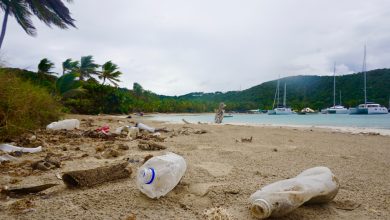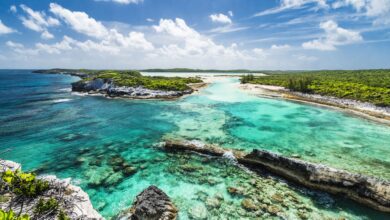Message from Assistant Secretary General in Charge of Human Development at the CARICOM Secretariat Dr. Douglas Slater for World Environment Day
World Environment Day was celebrated on Sunday. In recognition of the day, CARICOM Assistant Secretary-General Dr. Douglas Slater expressed the Community’s concern regarding illegal, unreported and unregulated (IUU) fishing, illegal harvesting of endangered sea turtles, illegal logging and smuggling of local plant and animal, especially bird, species.

The CARICOM Secretariat wishes to add our voice to others in the Caribbean Community (CARICOM) to the international observance of World Environment Day under the theme ‘Go Wild for Life’. World Environment Day is a critical milestone in the United Nations’ calendar since it brings special focus to the environmental dimension of sustainable development and encourages action by all stakeholders no matter how large or small.
In this vein it should be noted that the environmental and natural resources management is an integral part of the Revised Treaty of Chaguaramas which governs the Community. In addition, the CARICOM Secretariat has prioritised the promotion of environmental resilience in the Community Strategic Plan, with one of the stated goals being to “ensure effective management of the natural resources across Member States”.
This year’s World Environment Day theme seeks to raise awareness of all the species under threat and take action where possible to ensure that they are safeguarded for the future generations. While this Region has not suffered the high levels of extinction, particularly of animals in other regions of the world, the Community remains deeply concerned with the issue of Illegal, unreported and unregulated (IUU) fishing , illegal harvesting of endangered sea turtles, illegal logging and smuggling of local plant and animal, especially bird, species.
This concern is demonstrated by the fact that many of our Member States are parties to the Convention on International Trade in Endangered Species of Flora and Fauna (CITES). This signals the Region’s commitment to ensuring that trade in species does not result in their viability being threatened. Additionally, over the past several years, the CARICOM Secretariat has been building capacity to combat the illegal wildlife trade, by providing guidance and training to Customs officers and other border control and law enforcement personnel in Member States.
We recognise that while there are traditional practices in the Region of harvesting wild species for food, the pet trade, ornamental plants, and medicinal purposes, this forms part of legal trade in wildlife. We are concerned however that the illegal wildlife trade is estimated to be worth US$17-20 billion according to the United Nations Environmental Programme (UNEP, 2016), making it one of the largest illegal trades by dollar value, together with drugs, guns and humans.
CARICOM therefore adds its voice in calling for attention to be paid to reducing illegal and unsustainable practices which threaten the survival of species. To this end we wish to commend the ongoing work in the Region of the various wildlife, forestry, fishery and border protection officials, as well as the various environmental Non-Governmental Organisations, both at the national and regional levels.
We believe that public awareness and education is key in ensuring that citizens as well as visitors to our Region are sensitised on how their consumption practices may be impacting our wildlife. In this regard involvement of civil society, especially the fishing community and indigenous communities, who are often on the frontlines, would be critical.
CARICOM Member States, the Secretariat, Regional Institutions and other regional and international partners remain committed to ensuring our natural resources are sustainably managed.







